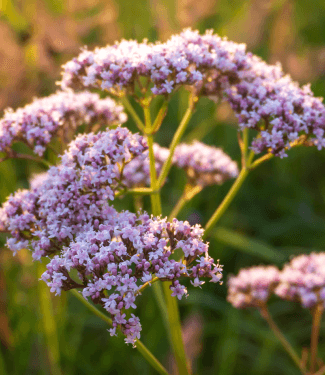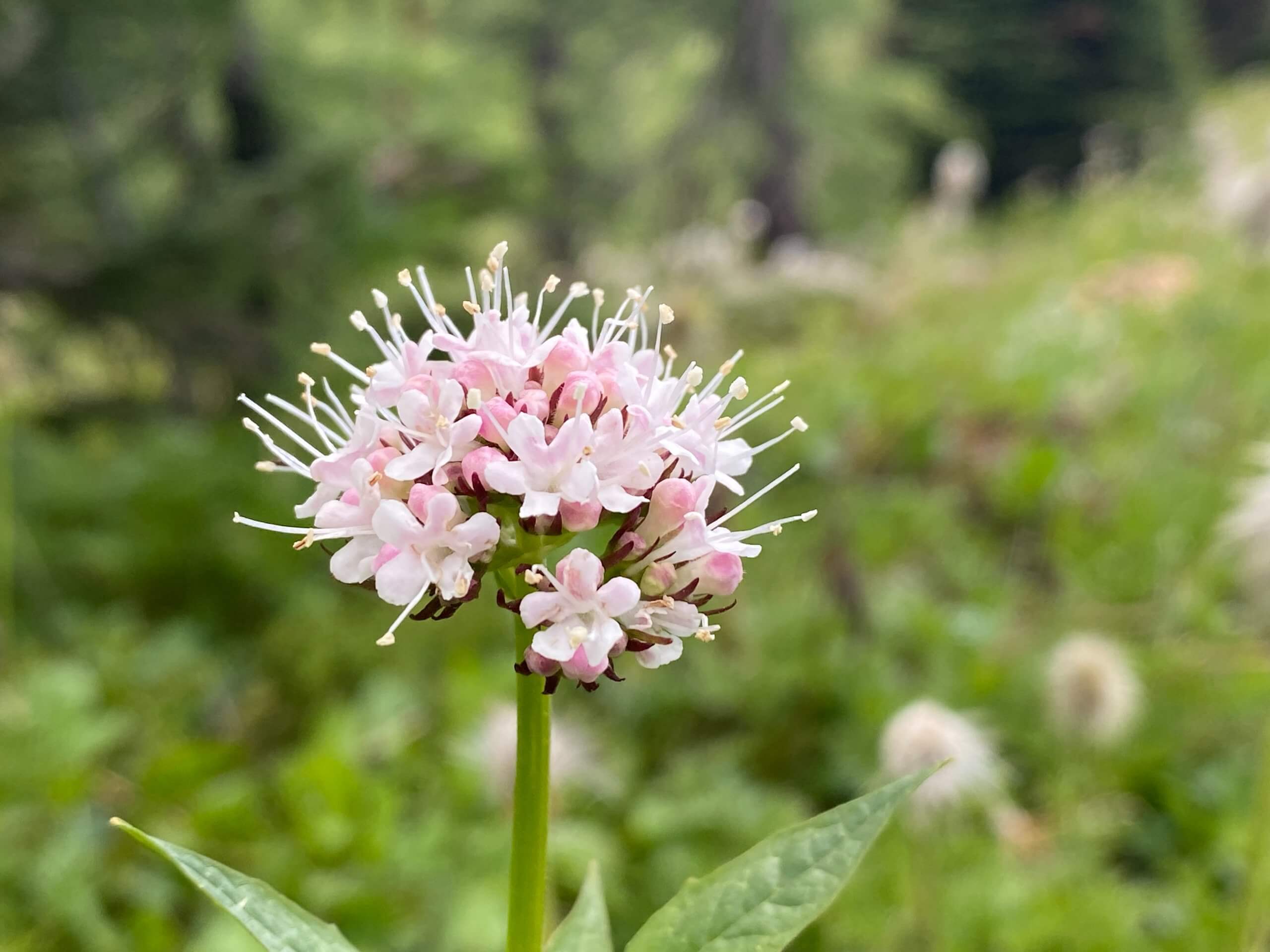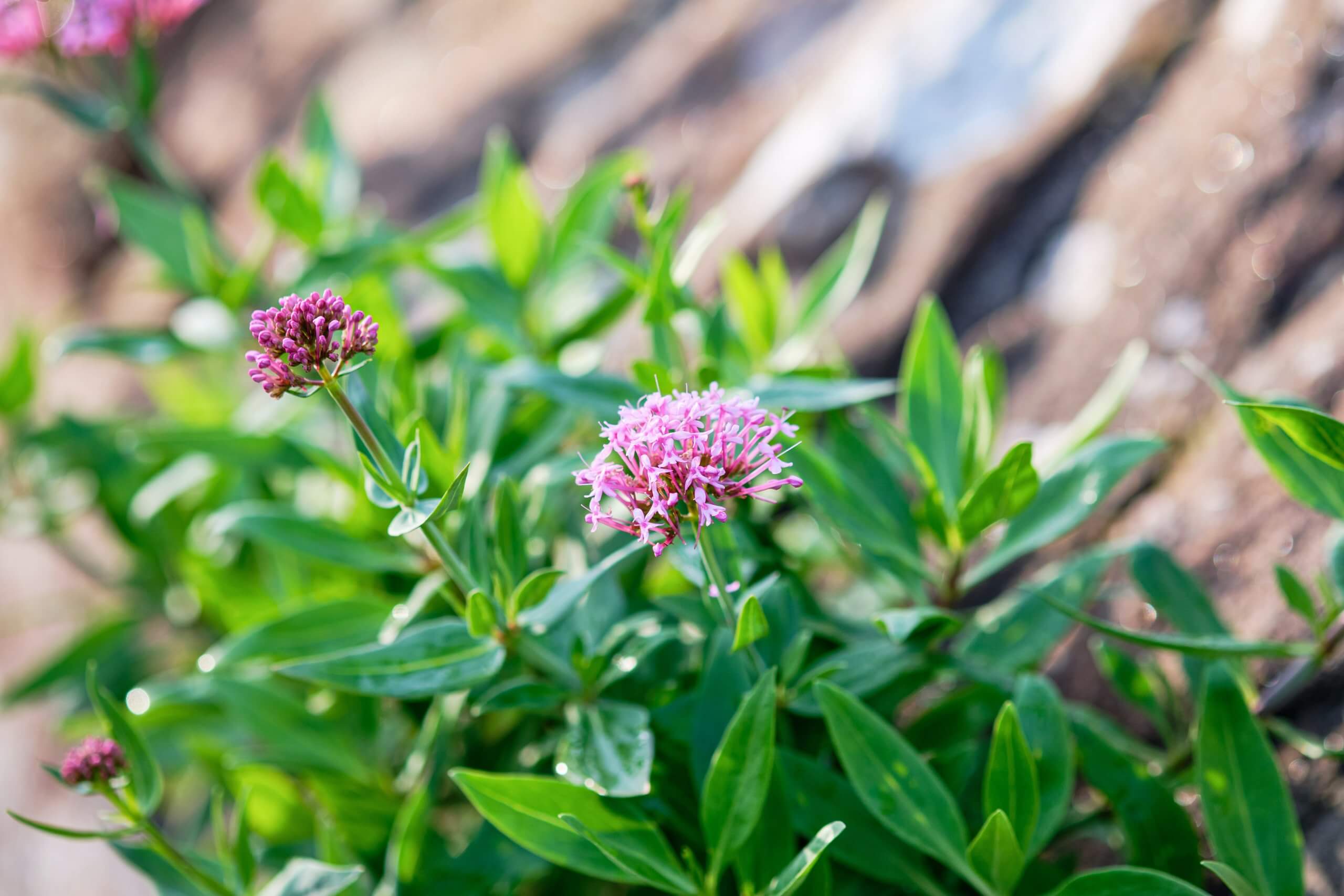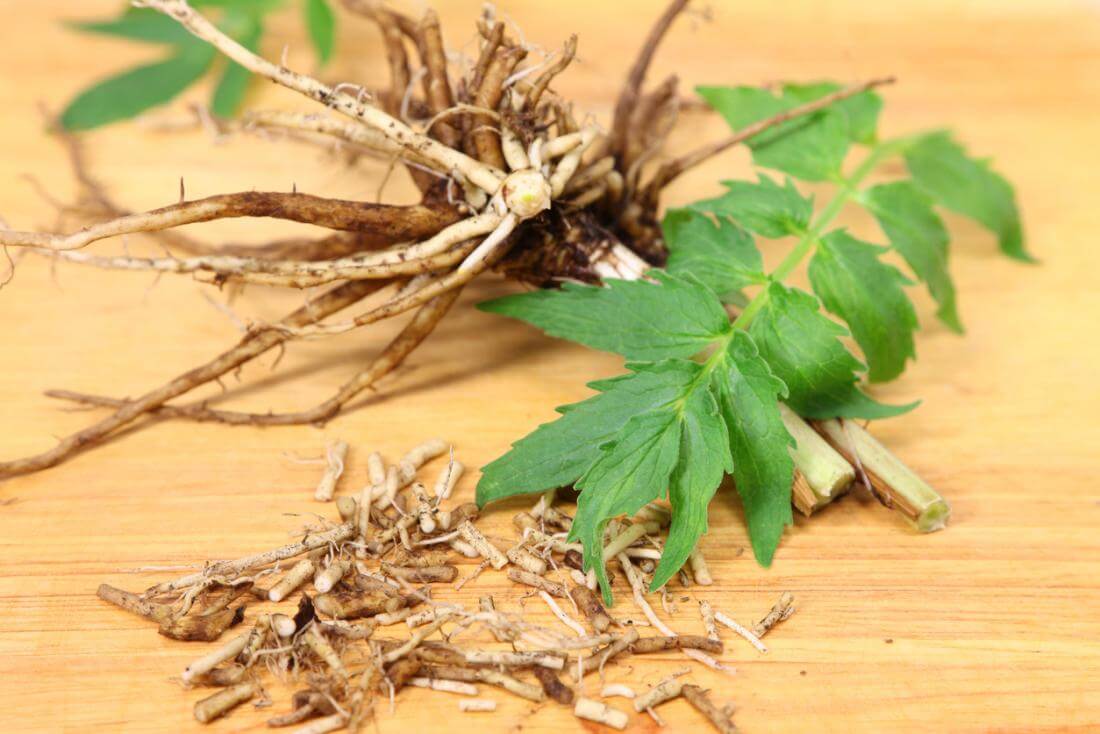Valerian

Valeriana officinalis
Valerian has been used as a sedative and relaxant at least since Roman times. It was known to Dioscorides in the 1st century CE, who named it phu, the sound of the word reflecting its unpleasant smell. Valerian has been known to help relieve stress and has become an increasingly popular remedy in recent decades. It is believed to be a safe, non-addictive relaxant that reduces nervous tension and anxiety and promotes restful sleep.
Valerian is a plant that grows wild in moist areas and is native to Europe and northern Asia. It is grown throughout eastern and central Europe. In the spring, the plant is developed from seed, and in the autumn, two-year-old plants’ roots and rhizomes are found.
VALERIAN IN HISTORY
In the Middle Ages, valerian, often known as “all-heal,” was praised for its many medicinal properties, including its success in treating epilepsy in 1592. In a comprehensive study on herbal therapy that Fabius Calumna wrote, he made his case that the herb had successfully treated his epilepsy.


FOLKLORE
To ward off evil, the Greeks placed a valerian sprig under a window. The foul-smelling root powder was stuffed into pillows to promote sleep, hung in the house to protect it from lightning, and used in protective sachets. Men were said to follow women who had a sprig of the plant pinned to their garments like little children.
FUN FACTS
1. During World War II, valerian was used in England to relieve stress caused by air raids.
2. Centuries ago, Valerian flowers were used to make perfume and the root was used as traditional medicine
3. Valerian root has a strong earthy aroma due to the presence of volatile compounds, including valerenic acid, which contributes to its sedative effects.
4. Valerian flowers have a sweet smell that attracts bees, butterflies, and other pollinators.
5. In addition to its medicinal properties, Valerian has been used in the culinary world. The leaves can be added to salads, soups, and stews, providing a mild and slightly bitter flavour.

WHAT ARE THE HEALTH BENEFITS OF VALERIAN?
Valerian has a wide range of specific uses, but it is most popular in cases of anxiety, nervous sleeplessness, and bodily symptoms of tension, such as muscle cramping and indigestion. Valerian is a valuable muscle relaxant, effective for muscles spasms, uterine cramps, and intestinal colic. A useful herbal sleep aid, valerian helps promote normal sleep, as it is not powerful enough to suppress necessary REM phases.
INSOMNIA
Valerian’s sedative and antispasmodic actions can be partially attributed to its content of valepotriates, and, to a lesser extent, to the sesquitperpene constituents of the volatile oil. According to some research, valerian may aid those who suffer from sleeplessness. Valerian has been recognised as an effective light sedative by Germany’s Commission E. Although they don’t fully understand how valerian works, scientists think it does so by raising the brain’s concentration of the chemical gamma aminobutyric acid (GABA). GABA has a soothing effect on anxiety and aids in the regulation of nerve cells. Drugs like diazepam (Valium) and alprazolam (Xanax) also function by raising the brain’s GABA levels. Researchers believe that valerian may have a comparable, though weaker, impact.
The use of valerian to promote sleep, enhance sleep quality, and lower blood pressure has been supported by extensive studies in Germany and Switzerland. In a 2002 German study, valerian and oxazepam—a common sleep aid—were both shown to be successful; 83% of valerian users described their experience as very good or excellent, compared to 73% of oxazepam users.
A high quality study from 2011 looked at the effects of valerian extract in 100 postmenopausal women who were experiencing insomnia. Those who received 530 mg of valerian extract twice a day for 4 weeks had significantly improved sleep quality compared with those who took a placebo
STRESS AND ANXIETY
Valerian is shown to reduces mental over-activity and nervous excitability, helping people who find it hard to “switch off”. It is beneficial for almost any stress-related condition, and, in general, has a calming effect on the mind.
According to research, valerian root may aid in reducing anxiety reactions to stressful situations. Anxiety symptoms were significantly reduced in a 2021 research of 39 persons receiving hemodialysis after consuming 530 mg of valerian root for a month, as opposed to a placebo. The therapy greatly enhanced depression and sleep quality.
MENOPAUSE
Valerian tea is not typically used as a treatment for menopause symptoms, but some research and clinical studies show that valerian may help with common menopausal symptoms, such as, hot flushes, sleep disturbances due to stress and anxiety. In a 2018 study, postmenopausal women who took 1,060 mg of valerian daily for two months experienced less hot flushes. A high quality study from 2011 looked at the effects of valerian extract in 100 postmenopausal women who were experiencing insomnia. Those who received 530 mg of valerian extract twice a day for 4 weeks had significantly improved sleep quality compared with those who took a placebo
Valerian may also be helpful for those who have premenstrual syndrome (PMS) or uncomfortable periods. According to another study, it lessened PMS’s behavioural, emotional, and physical symptoms.

ANY CONTRAINDICATIONS?
When used as directed, valerian is regarded as safe for the majority of users. For instance, a review published in 2020 on the efficacy and safety of valerian for treating sleep problems and related conditions, discovered that none of the 60 studies analysed showed any participant side effects of concern.
Although valerian side effects are rare, some people may experience:
- weakness and headaches
- dizziness
- diarrhoea and stomachaches are examples of stomach problems
- vivid dreams
- fatigue a metallic aftertaste
TEAS WITH VALERIAN
We wanted to combine valerian and hops with other complementary herbs to create the award-winning Sleep Well tea since studies demonstrate that the two work together to promote higher-quality sleep.
Sleep Well Tea Scientific research has been used to make Sleep Well Tea, which uses traditional herbs to support peaceful sleep and calm nervous thoughts. With chamomile, lemons, and mint in a well-balanced cup, the infusion is calming and naturally sweet.
Disclaimer: This website contains general information about the traditional use of herbal teas. The information is not advice, and should not be treated as such. If you have any specific questions about any medical matter you should consult your doctor or other professional healthcare providers.






